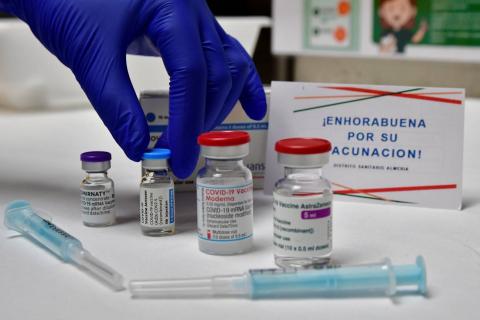Reaction to a new intranasal HIV and SARS-CoV-2 vaccination device tested in animals
US researchers have designed an intranasal vaccination device that is capable of delivering immunising proteins through the mucosal surface. The research, published in Science Translational Medicine, shows that strong antibody responses against viruses such as HIV and SARS-CoV-2 have been achieved in mice and non-human primates.
Manel Juan - vacuna intranasal VIH SARS-CoV-2
Manel Juan
Head of the Immunology Service
The study addresses all aspects to be assessed that are necessary to provide evidence for the proposal. It is a solid study, although there are still questions to be answered about the mechanisms involved.
The data are robust, so the conclusions have the required consistency. It is fully consistent with previous evidence, although its actual efficacy will need extensive studies in humans and within clinical trials.
The main limitation concerns its effect in humans, as there are no clinical trials yet. Without them, we can assume that it is a good proposal, but it needs to be confirmed and, above all, to have tools to assess adverse effects that until they are not studied in humans with their polymorphisms (especially HLA) cannot really be assessed. It will be particularly interesting to see the autoimmune responses or excessive inflammatory responses, which are difficult to predict in different species.
- Artículo de investigación
- Revisado por pares
- Estudio experimental
- Animales



